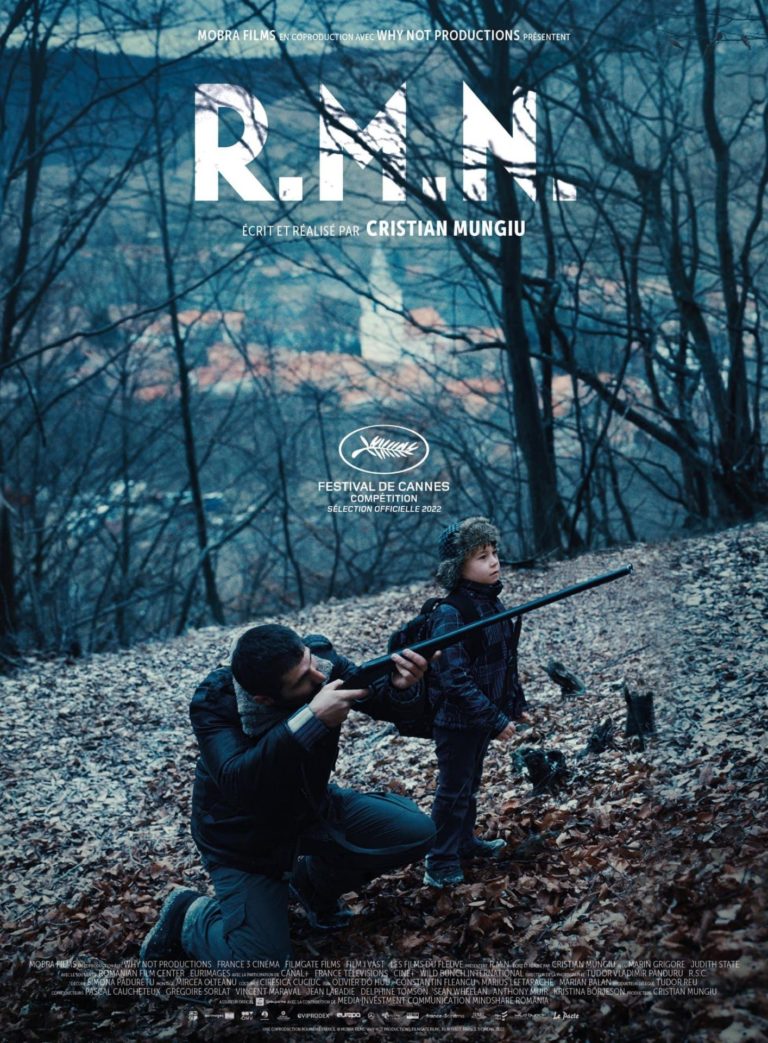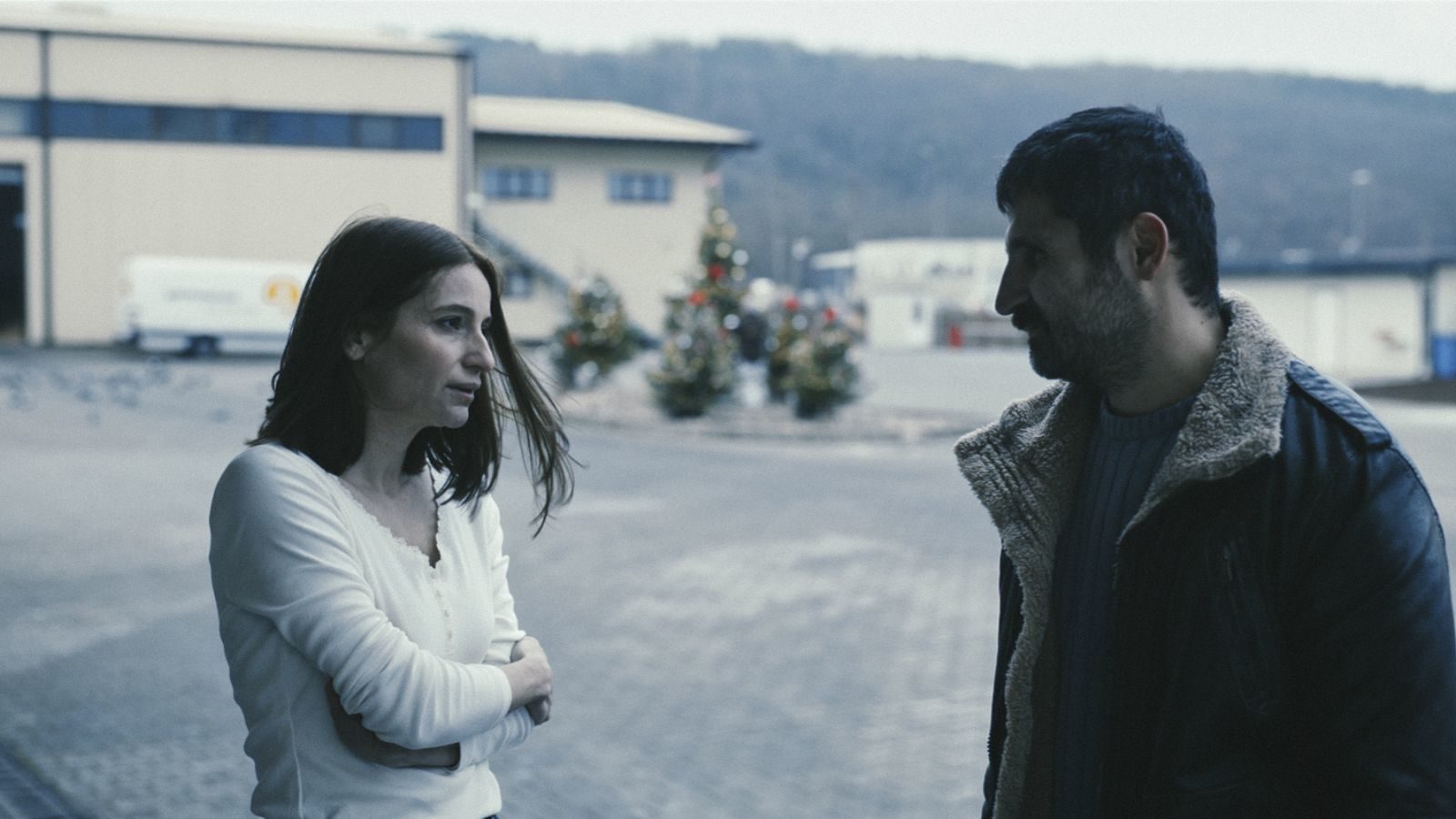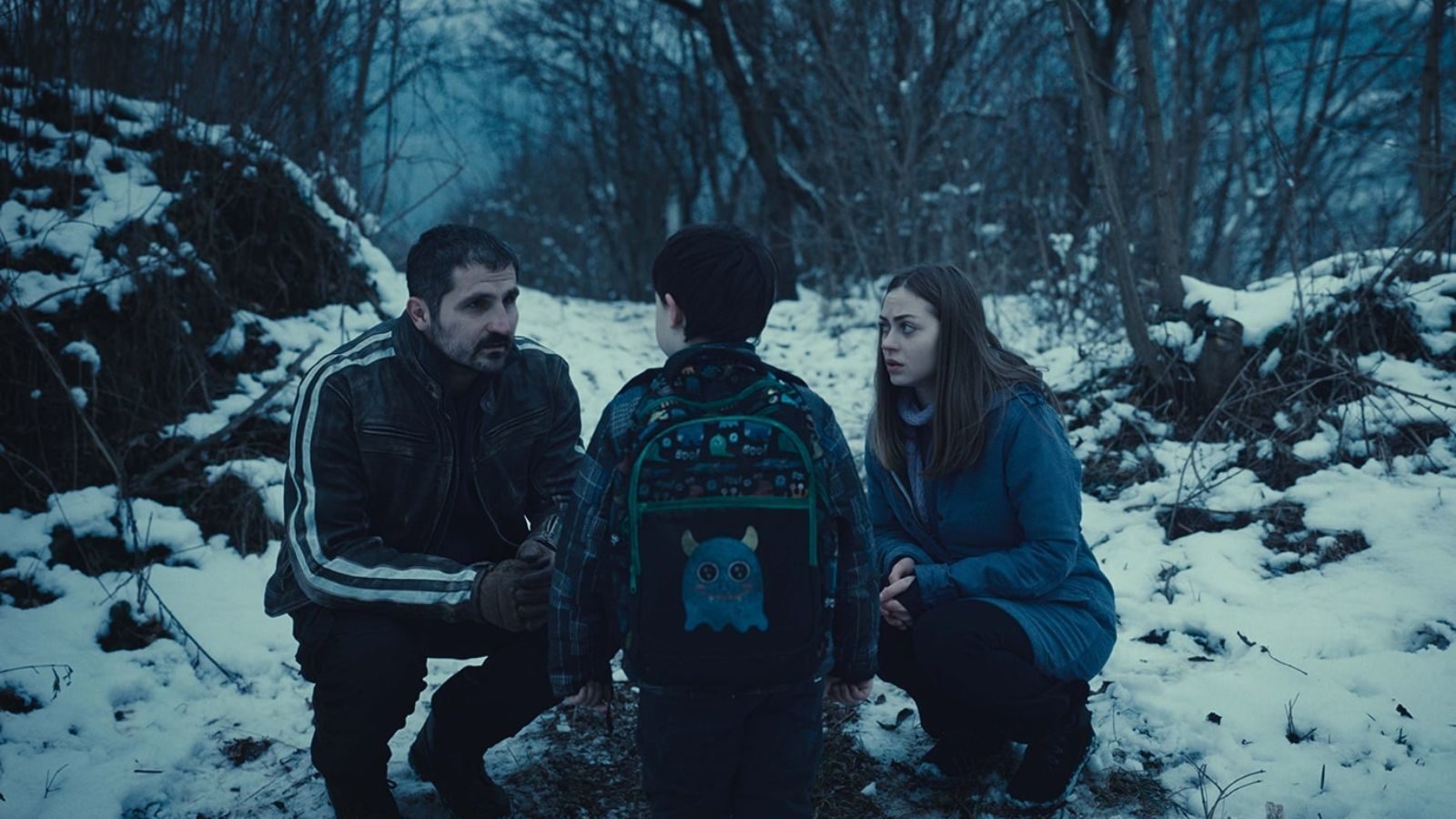
Some of the most relatable, important stories to be told in cinema are those that reflect on various realistic conflicts, ranging from racial, social, political, ecological and emotional issues. R.M.N., the latest drama from Palme d’Or-winning Romanian writer-director, Cristian Mungiu, exposes those battles by showcasing how a community of struggling people can easily turn hateful towards each other when they’re unable to maintain secure life for themselves.
R.M.N. is set in a rural Transylvanian town that’s driven by ethnic conflicts, economic resentment and personal turmoil. One of its residents, Matthias (Marin Grigore), who has been working abroad at a German slaughterhouse, ventures back to the village after he violently responds to a racist slur that was made during one of his shifts.
Upon his return home, Matthias discovers that his estranged wife, Ana (Macrina Bârlădeanu), has grown even more distant. His young son, Rudi (Mark Blenyesi), has also stopped talking after witnessing a disturbing scene in the forest near their home.
Matthias must also take care of his sheep-farmer father, Papa Otto (Andrei Finți), who is seriously ill. Matthias is tasked with taking his father to the hospital in order to undergo the titular brain scan procedure.
Meanwhile Matthias’ former lover, Csila (Judith State), with whom he hopes to rekindle an affair with, has become involved in an escalating controversy when the small bread factory she runs begins hiring Sri Lankan migrants. She made the discussion to hire the migrants after speaking with her boss about the difficulties of hiring local bakers, as they’re unwilling to accept the minimum-wage salaries the business is offering.
The arrival of the migrant workers sparks a wave of racist indignation throughout the small community. The situation exposes the harrowing sentiments that have long been secretly plaguing the seemingly serene town.

R.M.N. is a compelling character study and analysis of the driving forces of human behavior, particularly in terms of how people perceive and connect with others in complex situations that present uncertain solutions. Grigore expertly brings Mungiu’s stoic characterization of Matthias to the screen, particularly in terms of how his idealistic views about the way society should be run impacts how he relates to and treats his family.
While Matthias is meant to serve as the story’s protagonist, his anger at his own situation and his simultaneous ambivalence to the injustice happening around him are the prime driving force behind the film. His actions drive the analysis of the self-serving driving forces of his character; he outwardly supports protecting everyone, but is ultimately more focused on how he and his family will survive in such a troubled environment.
Grigore’s portrayal of Matthias throughout R.M.N. establishes the at-times natural cognitive dissonance that allows hate and indifference to take hold of a community’s residents. For every grievance that the community has with the circumstances they find themselves in, there’s a devastating sense of selfishness, similar to what the protagonist is feeling. Those self-serving acts ensure that the cycle of exploitation will continue.

Grigore‘s stellar performance as Matthias and the Transylvanian landscapes he finds himself back in when he returns home were brilliantly captured by the movie’s director of photography, Tudor Panduru. The cinematographer used an extreme-widescreen 2.39:1 aspect ratio to showcase the serene exterior landscapes in the protagonist’s home country that he so desperately wishes to protect and find a comfort in for himself and his family.
Meanwhile, the more personal interior scenes were more intimately choreographed to show all sides of every argument simultaneously. Panduru shot those sequences in 360 degrees whenever possible, which amplified the intensity of the interactions between Matthias, his family and the people closest to him, and his community.
R.M.N. stunningly dramatizes the tensions of modern Romania, which is still beholden to dangerous traditions that emphasize people striving to secure and maintain a better life.
Grigore encapsulates the complex, multi-faceted Matthias throughout the drama, particularly in terms of how his idealistic views about the way society should be run continuously influences the way he treats his family. Combined with Panduru’s stellar use of extreme-widescreen cinematography to emphasize how the protagonist becomes engulfed by his society’s expectations at times, the film is a perfect study of how religious, ethnic and cultural tensions interfere with people’s existences and senses of security.
Grade: A-
Check out more of Karen Benardello’s articles.
R.M.N. is having its U.S. premiere this weekend at the New York Film Festival.

